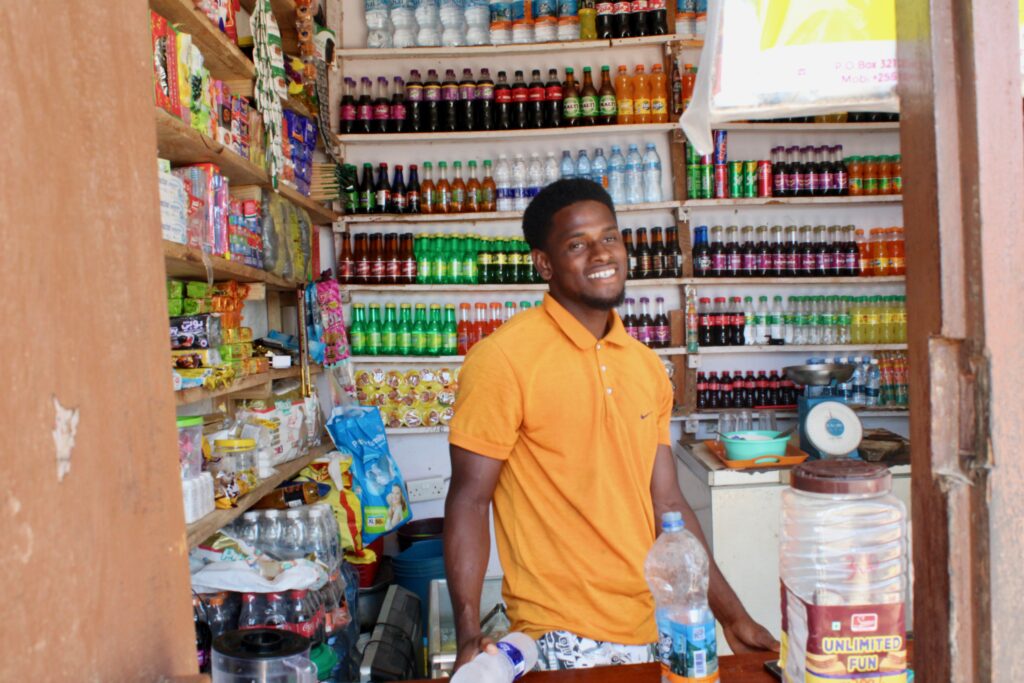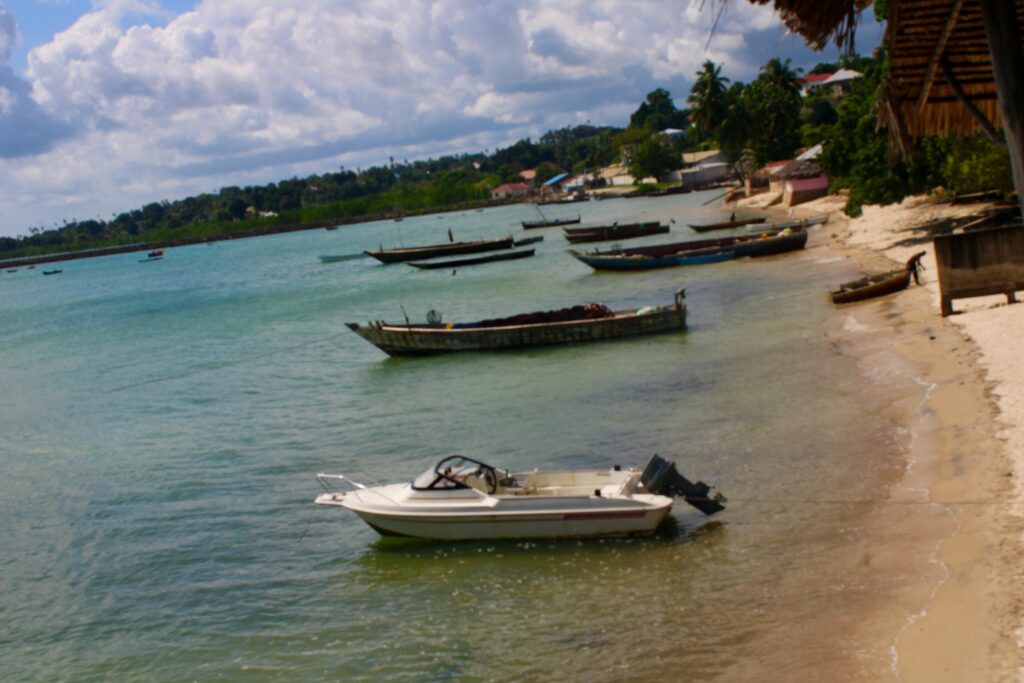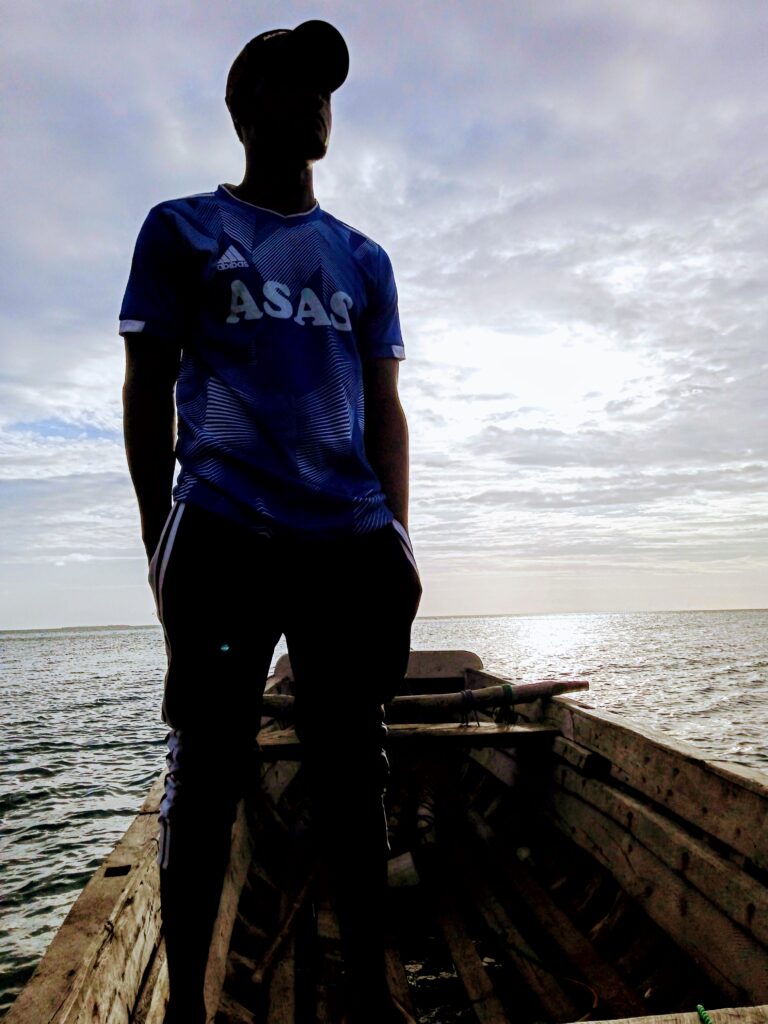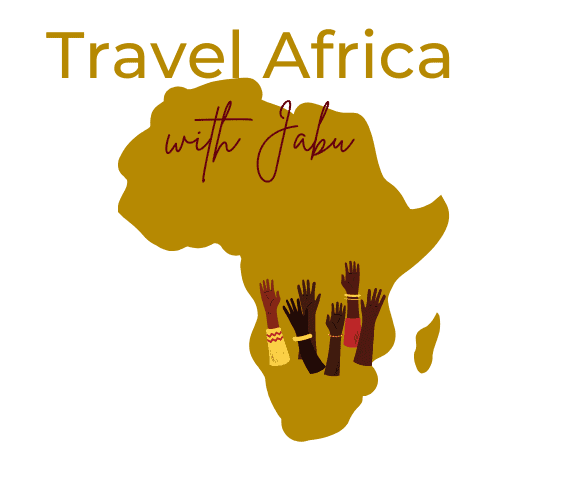I can’t pinpoint the moment it happened. The day we became friends. I can’t even recall the first time I saw him. I do know that I disliked the idea of eating alone in the empty restaurant on Pemba Island while he worked around me, so I invited him to join me.
“My name is Khamis,” he introduced himself. His voice was slow in cadence but strong and deep. “My first name is Khamis, my middle name is Nassor and my last name is Juma. I live here in Pemba with both my parents.”
I had met his father previously when he visited the Lala Lodge, the hotel I was staying at. He had playfully asked me to be his third wife. I didn’t know then he was the village chief. Khamis playfully attributed his own popularity in the village to being the son of the chief.

I’ve been amazed to see how popular Khamis is in his home village of Mkoani. Everywhere he goes, other young men seem to flock to him. They’ll walk with him for a while, then more will join us, and by the end of the night, we’ll often be a big group at the hotel restaurant, sharing drinks and trying to communicate in both kiSwahili and English. Thanks to Khamis’s good English skills, he ends up translating a lot of the conversation between all of us. That’s just one more thing that makes him so popular around here.
Khamis is a sought-after English teacher in his community. He dropped out of school, but that didn’t stop him from teaching others how to read and write in kiSwahili. When the team at Pemba Speaking Club noticed his teaching ability, they invited him to join the club and learn English. He studied for 18 months and then offered his services to his peers again. I had the chance to meet one of Khamis’s students, Abed, when I went on a village tour of Makongwe Island. Abed now volunteers as an English teacher at the local school and credits Khamis for his success. Despite his popularity, Khamis has no interest in taking his teaching further. He wants to own his own business. “My plan is to find a business because I know I don’t have an education so nobody can employ me you know.”

He tells me about his plans to start a fish business. He’ll buy three freezers total, keeping one on Pemba Island and using the other two for Unguja Island. He’ll buy the fish in Pemba and then transport them to Unguja for sale. This way, he can offer them at a much lower price than his competitors. As he explains this to me, we’re interrupted by a loud cock crowing. The sun is high and bright in the sky, and the kids playing on the beach below fill the air with their laughter and cries. Soon the tide will come in and they won’t be able to play there anymore.
It’s clear that Khamis loves his village and is proud of it, despite there not being much to do. He’s happy to have the opportunity to go fishing with his friends and earn some money. “I don’t stay and rest every day. Sometimes I find a job in the village. My friend, Swale has a boat and sometimes he calls me to go fishing with him.”

A few days later, Khamis invites me to the Gongomawe Stadium to watch his team play football against a competing team. The stadium is filled with enthusiastic fans. It’s a few hours of respite for the villagers from the village and its demands. They cheer on happily screaming any time Khamis handles the ball. Despite the game ending in a draw, the ride home on the bus is beautiful chaos. Every space is occupied and the men sing along to Zuchu’s Sukari before belting out Alikiba’s Bwana Mdogo their moving bodies gently shaking the small bus.
Khamis grins at me as we walk back to the lodge, his football shoes dangling from his fingers. “I hope to play for the national team one day,” he explains. That might have been when we became friends– when I started believing in his dream.
